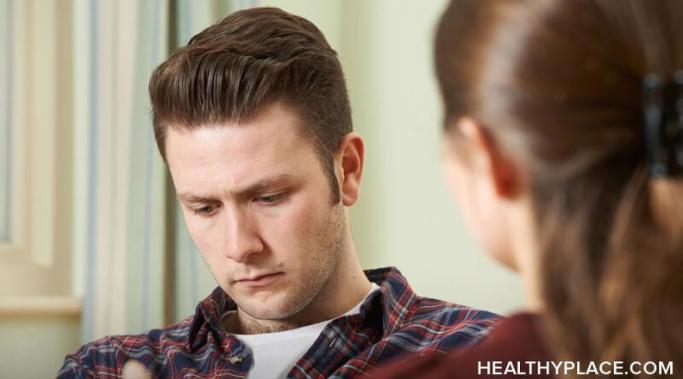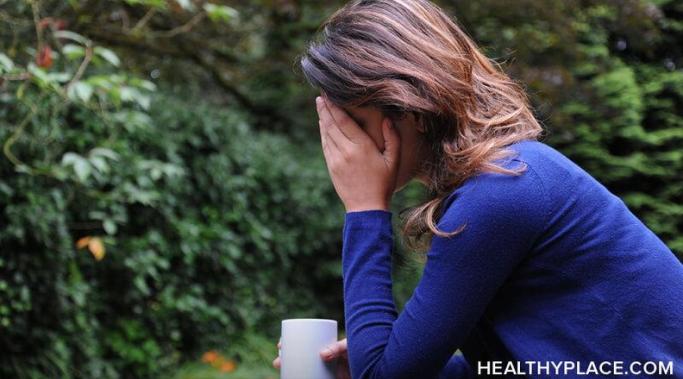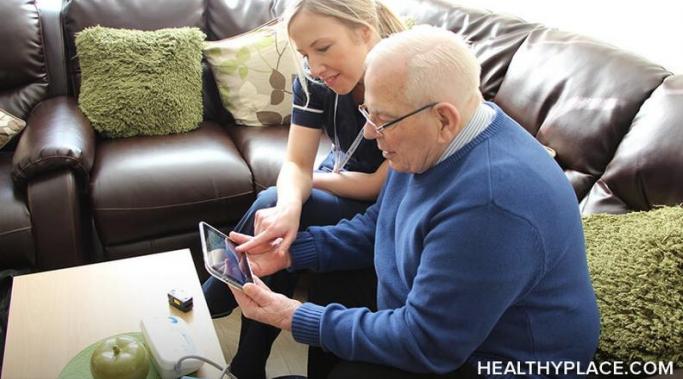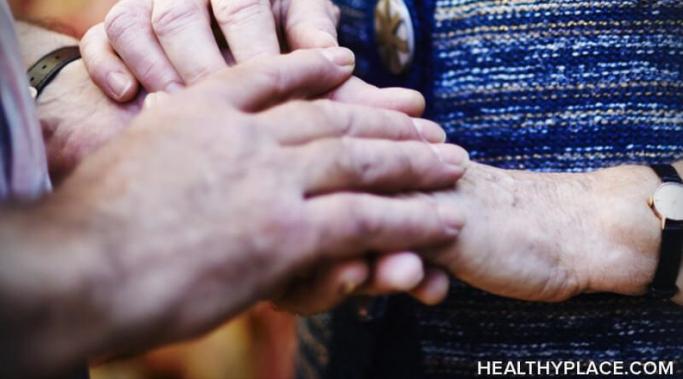Ruminating can harm your mental health recovery because when you "go over in the mind repeatedly and often casually or slowly" you compulsively remind yourself of what is wrong. It's negative thoughts compounded by repetition and habit, making rumination dangerous. People with depressive and other mental illnesses often have a similar trait: many suffer from excessive and compulsive negative thoughts that distort reality. Thus, rumination involves an endless loop of negative thinking that can exacerbate depression and other mental illnesses.
Coping Skills
The lack of motivation that can be caused by depression and other mental illnesses can be debilitating. There are some things that are so important they must be done as soon as possible. But for those who battle depression, the lack of motivation can be an enemy that seems insurmountable at times (Depression Can Drain You of Your Will to Live). Here's what to do when depression causes a lack of motivation.
Does the news trigger your mental illness symptoms? I guess you could say early on there were signs I was going to be a reporter when I grew up--I read the newspaper as soon as I learned to read. Then, as today, there were some very disturbing things going on. I remember having a nightmare about the Neighborhood of Make-Believe being bombed when Reagan ordered the bombing of Libya. I never outgrew this, either--I am currently coping with posttraumatic stress disorder (PTSD) flashbacks caused by the coverage of a high-profile rape case and a disgusting child abuse case. It made me wonder--what can I do when the news triggers my mental illness symptoms? Here are three ideas.
Spirituality can be vital to recovery from mental illness. But, like many things, spirituality and mental illness is a double-edged sword. While belief in a Higher Power can aid mental illness recovery, unhealthy spiritual beliefs can make our mental illness symptoms worse. But what are some warning signs of unhealthy spirituality? How do we know if we have what one writer called "toxic faith?"
This past week brought a lesson in how vital self-care is to mental health and mental health recovery. Self-care can be overlooked when we are suffering from depression or experiencing other mental illness symptoms. I have a dear old friend who many consider the sweetest person they’ve ever known or may ever know. This dear woman has always been the type who will go to the ends of the earth to help people, and not just friends and family.
I'm anxious about tomorrow. Tomorrow, I have an upper endoscopy scheduled so we can hopefully find out why I'm having abdominal pain and why I recently had pancreatitis. I have a little of what a friend calls "scan-xiety"--nervousness over what the test results may be. I'm guilty of some catastrophic thinking - what if it's pancreatic cancer? - but I've got three coping skills that are helpful. Here's how to handle catastrophic thinking and anxiety.
Sometimes, I suffer from catastrophic thinking. I'm embarrassed to admit it, but recently I fell for the old "one million Neopoints" scam. For those of you not familiar with Neopets.com, it's an addictive site in which you own a pet and play games with it. The "one million Neopoints" scam is against the site's Terms Of Service. As a result of my stupidity, my account of 10 years may be frozen, causing me to lose everything I worked for. And equally embarrassing to admit, this has caused me a great deal of stress. I've had nightmares about it. I even have a surgical procedure scheduled in February and the Neopets thing is stressing me out more. This is typical for my borderline personality disorder (BPD)--just about anything can seem like the end of the world, like a catastrophe.
Those of us in mental health recovery are often faced with the hardships our symptoms can cause us. It can be easy to get discouraged, to look at our progress in recovery and tell ourselves, “I’m never going to overcome this mental illness.”
Coping with symptoms of mental illness can be a daily struggle for the mentally ill. Each person develops his or her own strategies to cope with these painful experiences. These strategies can be as unique to each person as you can make them. What works for you to battle your mental illness symptoms might not work for me, and vice versa.
We learn these coping strategies over time in the crucible of our illness and the ways in which we gain insight into our symptoms and how they uniquely affect us. That’s why it’s not very helpful to say to a mentally ill person struggling with their symptoms, “Just do this,” or “Just do that.”
In 2010, I worked as a peer support specialist for a mental health organization in my community. Having been on the job for just over a year, I was feeling fulfilled and proud of myself for what I’d accomplished. Most importantly, I was making a difference to other people who suffered from mental illness. My colleagues were happy with my work and made it a point of telling me so.
So imagine my surprise when I was called into the boss’s office one day. She looked at me and said, “Mike, you are decompensating.” I didn’t even know what that meant.









